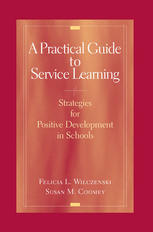

Most ebook files are in PDF format, so you can easily read them using various software such as Foxit Reader or directly on the Google Chrome browser.
Some ebook files are released by publishers in other formats such as .awz, .mobi, .epub, .fb2, etc. You may need to install specific software to read these formats on mobile/PC, such as Calibre.
Please read the tutorial at this link: https://ebookbell.com/faq
We offer FREE conversion to the popular formats you request; however, this may take some time. Therefore, right after payment, please email us, and we will try to provide the service as quickly as possible.
For some exceptional file formats or broken links (if any), please refrain from opening any disputes. Instead, email us first, and we will try to assist within a maximum of 6 hours.
EbookBell Team

4.3
28 reviewsThe ultimate goal for school psychologists, teachers, and other allied mental health and educational professionals is to ensure that all children are able to achieve academic success in the classroom. Still, a significant number of schoolchildren feel caught in an academic, social-emotional vortex that can be demoralizing, isolating, and disorienting. Some may be cognitively impaired. Others may simply be bored. Many are well-adjusted but overwhelmed with academic and extracurricular demands.
Ensuring that all students achieve their full academic potential is no small feat. Service learning – an experiential approach to education that involves students in meaningful, real-world activities – can advance social, emotional, and academic curricula goals while simultaneously benefiting the students and their communities. It supports character development by providing situations in the community in which caring, helping, and collaboration as well as sensitivity to culture and social justice issues become integral parts of the educative process.
A Practical Guide to Service Learning: Strategies for Positive Development in Schools is a valuable resource that:
School psychologists, counselors, allied educational and mental health practitioners – and anyone who works with children in schools – will find this volume a must-have reference.